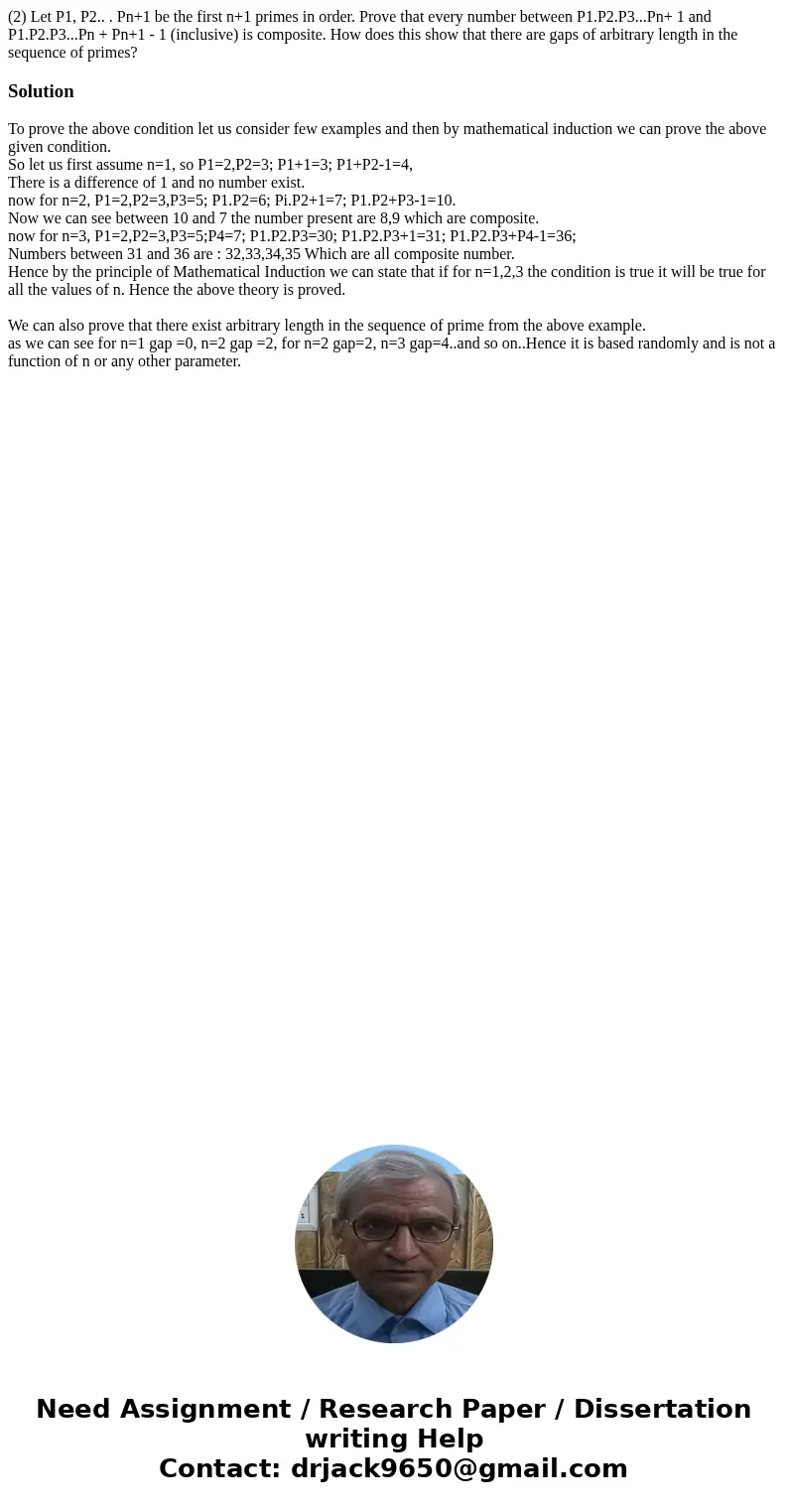2 Let P1 P2 Pn1 be the first n1 primes in order Prove that
Solution
To prove the above condition let us consider few examples and then by mathematical induction we can prove the above given condition.
So let us first assume n=1, so P1=2,P2=3; P1+1=3; P1+P2-1=4,
There is a difference of 1 and no number exist.
now for n=2, P1=2,P2=3,P3=5; P1.P2=6; Pi.P2+1=7; P1.P2+P3-1=10.
Now we can see between 10 and 7 the number present are 8,9 which are composite.
now for n=3, P1=2,P2=3,P3=5;P4=7; P1.P2.P3=30; P1.P2.P3+1=31; P1.P2.P3+P4-1=36;
Numbers between 31 and 36 are : 32,33,34,35 Which are all composite number.
Hence by the principle of Mathematical Induction we can state that if for n=1,2,3 the condition is true it will be true for all the values of n. Hence the above theory is proved.
We can also prove that there exist arbitrary length in the sequence of prime from the above example.
as we can see for n=1 gap =0, n=2 gap =2, for n=2 gap=2, n=3 gap=4..and so on..Hence it is based randomly and is not a function of n or any other parameter.

 Homework Sourse
Homework Sourse